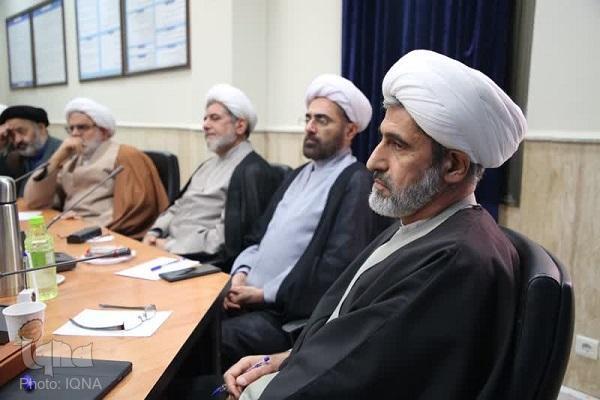AI ‘Valuable Tool’ But Cannot Replace Human Thought: Islamic Scholar

Addressing a local event on Sunday in Qom, Hojat-ol-Islam Mahdi Azizan, President of Imam Sadiq (AS) Research Institute of Islamic Sciences, shared his perspectives on the multifaceted nature of artificial intelligence (AI), emphasizing its philosophical implications alongside its scientific aspects.
Azizan argues that a common mistake is to interpret AI solely within the realm of empirical sciences, thereby limiting its scope and functionality to these fields.
He asserts that AI is inherently interdisciplinary, bridging both philosophy and empirical sciences. According to Azizan, "the philosophical dimension of AI has been largely overlooked."
Read More:
One of the critical issues Azizan highlights is AI's inability to engage in abstract thinking. He contends that, despite technological advancements, AI cannot achieve this capability.
Drawing from Islamic philosophy, he explains that human rational thought is dependent on abstract and universal concepts, which are non-material and essential for genuine thinking. In contrast, AI operates within a completely material framework, which, according to Azizan, "prevents it from ever fully replicating human cognitive functions."
The scholar further elaborates that AI processes and judges based on its programmed data and algorithms, whereas humans have the unique ability to transcend data constraints.
Read More:
He points out that AI lacks the capacity for creativity and innovation, which are intrinsic to human thought. Additionally, spiritual intelligence, which encompasses the ability to connect with the metaphysical, is exclusive to humans and beyond the reach of machines. "Human emotions such as joy, sorrow, happiness, and hope cannot be transferred to machines," he notes.
This emotional depth is a fundamental aspect of human experience that AI cannot replicate, Azizan highlighted.
Read More:
AI is a “valuable tool” but it will never replace human thought, he said, adding that this technology, like the human brain, is an instrument at the service of the human spirit.
It can enhance human capabilities but cannot substitute the unique qualities of human beings as thinking, creative, spiritual, and emotional entities. "AI will never occupy the place of human beings," he asserts.
4254470



